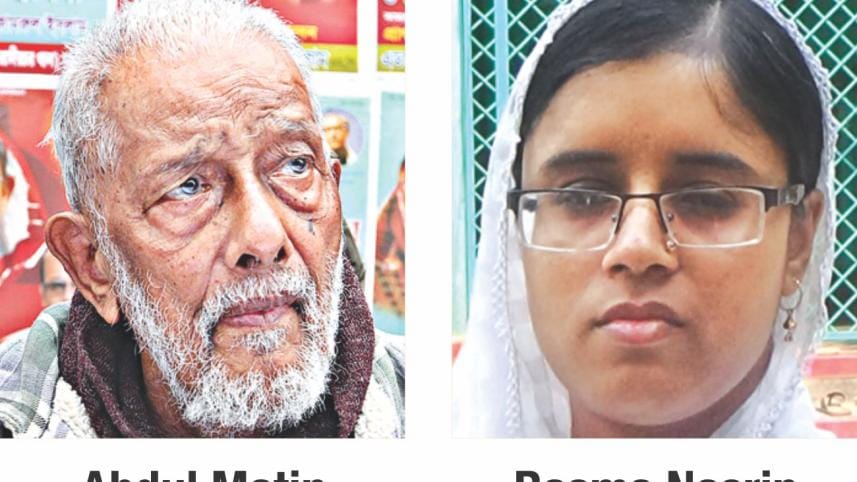Light hasn't gone out

Writing, reading, singing and just plain speaking: February is the month to celebrate our mother tongue in all its vibrant forms. It's when we remember the sacrifice of the heroes of the 1952 Language Movement, many of whom gave their lives. Born in Sirajganj in 1926, renowned activist Abdul Matin lived through those days of turmoil. Before his eventual death at the age of 88, he decided to make a final contribution. So that others could see, not least so that others could read and write in their mother tongue, he gave his eyes.
On March 24, 1948, Matin arrived at Dhaka University for convocation. During his speech at the ceremony Mohammad Ali Jinnah reiterated his policy that Urdu was to be the country's only state language. Upon hearing this, Matin famously stood up and shouted “No! It cannot be!”
Matin remained active in the Language Movement thereafter. So strong was his association with the Movement that he was popularly known as 'Bhasha Matin,' meaning 'Language Matin'. In 2008, in recognition of his significant contribution Dhaka University conferred on him an honorary law doctorate. He passed away on October 8, 2014.
At the time Rasma Nasrin, now 32, from Shuapur in the Dhamrai area of Dhaka's outskirts was facing a medical emergency. “I felt like I was fighting for my life,” recalls the master's graduate, community healthcare worker and mother-of-one. “My left eye was damaged. I consulted doctors at countless eye hospitals, trying to arrange a transplant. The doctors said it was urgent. They said there was a risk that my damaged eye could lead to cancer.”
The search was on to find a compatible cornea; the situation was desperate. “At one stage my husband made the decision to take me to India,” says Nasrin, who currently works at a government-run clinic, “but the cost would've been very high. The truth is my family couldn't afford it.”
On the morning of October 8, Nasrin heard the name of Abdul Matin. It was in a news bulletin on television, saying that Matin had donated his eyes at the Shandhani Eye Hospital in Dhaka. That very evening Nasrin went to the hospital to inquire about it.
“I was requested to attend the hospital again on the following day, so that tests could be done to see if the cornea would be compatible,” Nasrin says. The tests were arranged at the Bangabandhu Sheikh Mujib Medical University and after a period of intense waiting the results came in: Matin's eye was a match.
On the evening of October 9, the transplant was performed. Nasrin received Matin's eye. It was a good fortnight later that her new eye first opened to see her daughter standing before her.
Needless to say, Matin's donation has transformed Nasrin's life. “I can see with both eyes now,” she says, “though I see best with sunglasses. It's my great fortune not only to have a new eye, but to have the eye of a Language Movement hero. It's become a part of who I am.”
Nasrin's only regret is that she is yet to meet Matin's family. She wants to express her gratitude in person. “We haven't been able to get their contact details,” she says.
It's not only Nasrin and her family who are thankful for Matin's great gift. In her village of Shuapur there are many locals, friends and neighbours, who honour his name.
“I learnt such an important lesson from him,” says Nasrin. “When I die, if it is in good condition, I hope to donate my right eye.”
Abdul Matin is one Language Movement hero whose contribution didn't end in 1952. Indeed it continues still now, through the sight of another, from beyond the grave.
 For all latest news, follow The Daily Star's Google News channel.
For all latest news, follow The Daily Star's Google News channel.
Comments